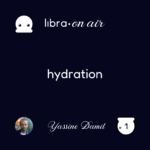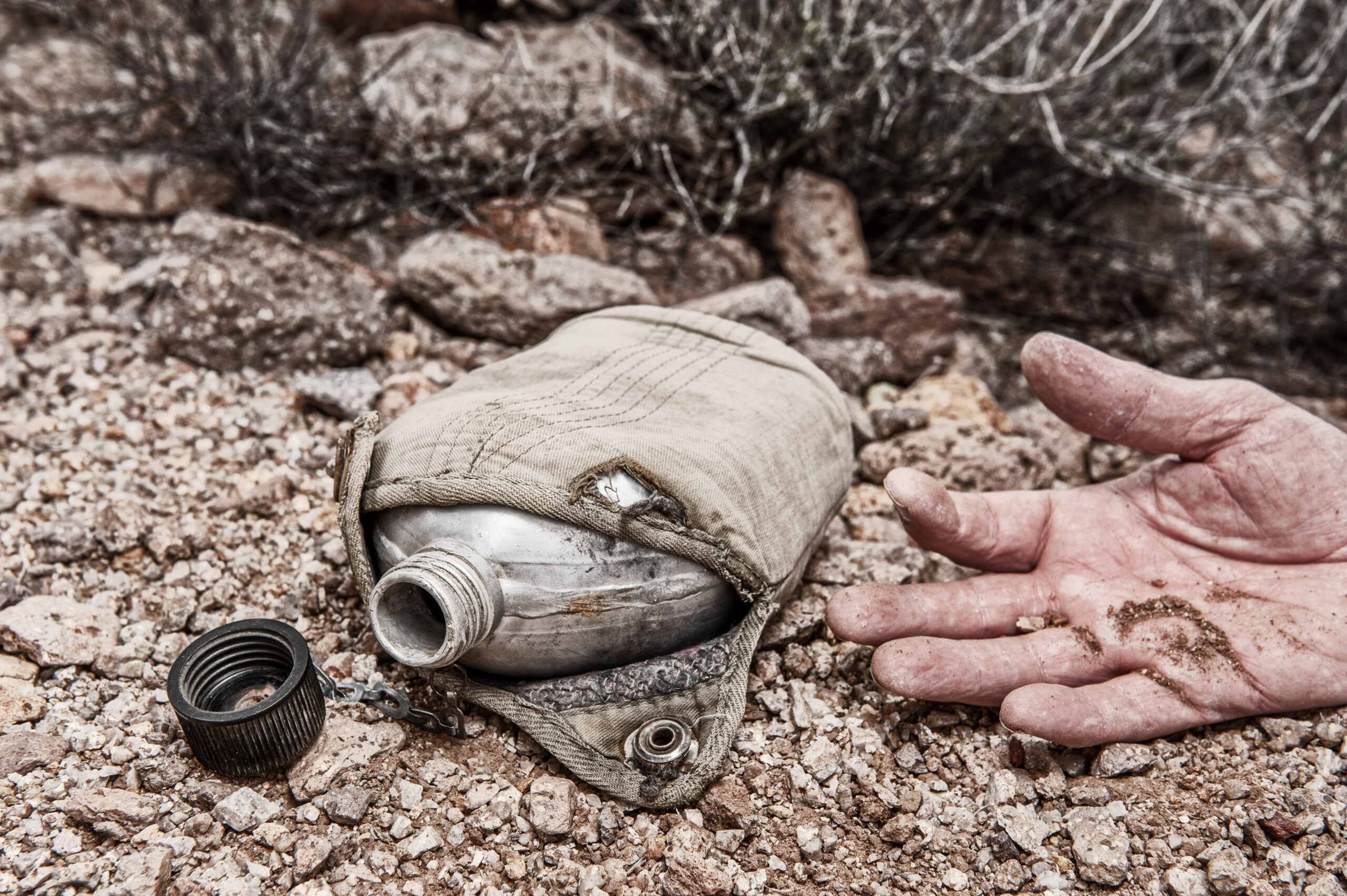Episode 1

TL;DR
- The myth of 8 glasses of water a day is not based on scientific evidence.
- According to the American National Academy of Medicine, the recommended intake is 2.7 liters (91 ounces) for women and 3.7 liters (125 ounces) for men. These recommendations depend on many factors, such as body size, physical activity level and environment.
- The recommendations cover total water intake, including water from food (20%) and other beverages (coffee or tea).
- The risks of dehydration are often exaggerated, but drinking plenty of water has many benefits, such as transporting nutrients, protecting organs and eliminating waste.
- The color of urine can be an indicator of hydration: pale urine is a good sign.
Are you the type who blames yourself for not drinking your 8 glasses of water a day? And this urban legend even has you worried about dehydration! Job conditioned, I started looking for scientific recommendations on our water requirement. Let’s dive in (pun intended)…
Our water requirement
In the US, the authority on the matter is the National Academy of Medicine. By the way, its European equivalent is the EFSA (European Food Safety Authority). Without going into too much methodological detail, I need not the Estimated Average Requirement but its Reference Value (the one that should cover almost the entire population). To keep sources consistent throughout, I’ll give you the American figures1: 2.7 liters (91 ounces) for women and 3.7 liters (125 ounces) for men. That’s a lot, isn’t it?
And this is only an average, which may depend on a number of additional factors such as your height, your physical activity level, your physiological state (pregnant, ill, etc.) and the environment in which you live (temperature and humidity)…
Yet, thanks to the 2015-2018 National Health and Nutrition Examination Survey or NHANES, we learn2 that an American adult drank an average of 5.5 glasses of water or 1.3 liters (44 ounces). Are we really that far off the mark?
Plain water requirement?
What these recommendations don’t say is that this is the total water intake. And plain water is not the only source of hydration. Food (20% of water intake) and other beverages must be taken into account.
In fact, a cucumber is 96% water (including the skin)3! And as the name suggests, there’s 91% of it in a watermelon4.
And yes, you heard right, we continue to hydrate by drinking coffee (the second most consumed beverage after… water). Contrary to popular belief, coffee and tea are definitely not dehydrating. Although caffeine increases urine production, the water you consume with these drinks offsets this diuretic effect.
Okay, but was 5.5 glasses enough, or should we aim for 8? First of all, nobody knows where this 8 came from, so we’ll just consider the total. Then, according to the 2009-2012 NHANES, daily water consumption5 for a woman is 2.75 liters (93 ounces) and for a man is 3.46 liters (117 ounces). So women would exceed their daily targets and men would be at 93% (on average, of course). So, is it (almost) good?
Listen to your body, unless…
To return to the title, the risks of dehydration are often exaggerated. But drinking 4 to 6 glasses of plain water (tap or bottled) is still worthwhile, if possible throughout the day. To put it simply, drink a glass of water before each meal.
Did you know that 65% of our body is made up of water? That’s not even close to betraying its long list of benefits:
- regulates body temperature
- protects tissues and organs as well as lubricates and cushions joints
- transports oxygen and nutrients to cells
- aids digestion and prevents constipation
- eliminates waste through urination, perspiration and bowel movements
- etc.
Some studies6/7 show that drinking more water can even help improve cognitive function. Try drinking a glass of water before an exam, an interview, or a podcast episode… Another8 one correlates it – logically – with weight loss…
Could I just advise you to listen to your body and simply drink when you’re thirsty? No, as some people are more at risk of dehydration because their bodies don’t send this very signal early enough. This is the case for the elderly or small children. In this situation, it would be best to check the color of your urine, which should remain pale.
Conversely, if you feel excessively thirsty and urinate frequently, this could be a sign of diabetes, and it would be best to consult a doctor…
Remember that water is not the only source of hydration. It’s a primordial subject, so maybe I’ll do other focuses on mineral water, sparkling water or the link with digestion…
Here’s a personal hack: Drink a glass of water first thing in the morning (well before breakfast). For me, it’s as if I were gently starting up the system from the inside…
Fun Fact
In Morocco, the guerrab9 or water carrier is a very old trade, today rather folkloric. He used to offer refreshing water for a few dirhams, especially in the souks. His name comes from the goatskin bag he carries. If you take a trip to Marrakech, be sure to listen out for his bell…
Going Further
References
- Institute of Medicine. Water. In: Institute of Medicine. Dietary Reference Intakes for Water, Potassium, Sodium, Chloride, and Sulfate. Washington, DC: National Academies Press (US); 2005:73-185. doi: 10.17226/10925 ↩︎
- https://www.cdc.gov/nutrition/data-statistics/plain-water-the-healthier-choice.html ↩︎
- https://fdc.nal.usda.gov/fdc-app.html#/food-details/2346406/nutrients ↩︎
- https://fdc.nal.usda.gov/fdc-app.html#/food-details/167765/nutrients ↩︎
- https://www.cdc.gov/nchs/products/databriefs/db242.htm ↩︎
- Armstrong LE, Ganio MS, Casa DJ, et al. Mild dehydration affects mood in healthy young women. J Nutr. 2012;142(2):382-388. doi: 10.3945/jn.111.142000. https://pubmed.ncbi.nlm.nih.gov/22190027/ ↩︎
- Ganio MS, Armstrong LE, Casa DJ, et al. Mild dehydration impairs cognitive performance and mood of men. Br J Nutr. 2011;106(10):1535-1543. doi: 10.1017/S0007114511002005. https://pubmed.ncbi.nlm.nih.gov/21736786/ ↩︎
- Vij VA, Joshi AS. Effect of ‘water induced thermogenesis’ on body weight, body mass index and body composition of overweight subjects. J Clin Diagn Res. 2013;7(9):1894-1896. doi: 10.7860/JCDR/2013/5862.3344. https://pubmed.ncbi.nlm.nih.gov/24179891/ ↩︎
- https://en.wikipedia.org/wiki/Tagarrabt ↩︎

